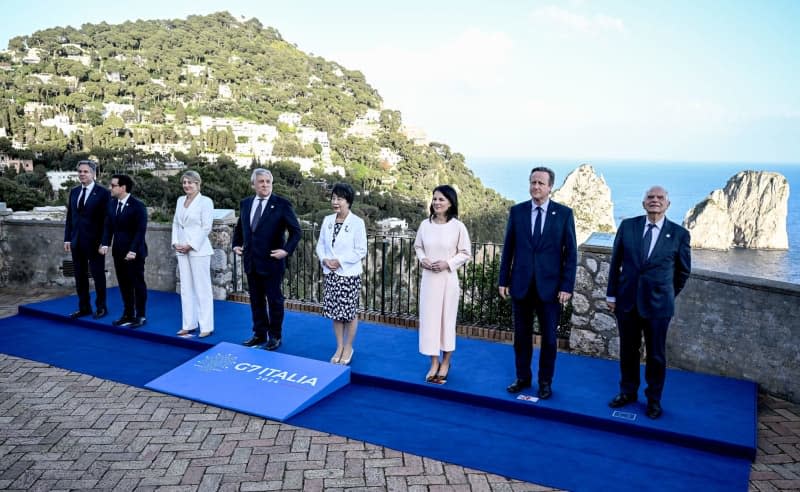G7 meeting to end with debate on China and global issues

- Oops!Something went wrong.Please try again later.
The spring meeting of the foreign ministers of the Group of Seven (G7) economically strong democracies is set to end on Friday with discussions on the situation in the Indo-Pacific region and global issues such as food, energy and cybersecurity.
In view of China's increasingly aggressive behaviour in the Indian Ocean and Pacific region, German Foreign Minister Annalena Baerbock had already stated at the start of the meeting that the effects are not only being felt by the G7's Pacific countries - the United States, Canada and Japan - but also in Europe.
The G7 meeting is being held on the Italian Mediterranean island of Capri.
Italy currently chairs the G7 group. Other members are the US, Canada, the United Kingdom, France, Japan and Germany.
The discussions at the meeting on Capri, which has been running since Wednesday evening, were dominated by concerns about the threat of a conflagration in the Middle East following the Iranian attack on Israel last weekend.
It is eagerly awaited how far the G7 ministers will go in their final declarations on the isolation of Tehran, as demanded by Baerbock and others.
The second major G7 topic was the intensified Russian attacks on Ukrainian infrastructure and the efforts to strengthen the air defence of the embattled country.
The host of the meeting, Italian Foreign Minister Antonio Tajani, plans to comment publicly on the results after the end of the consultations.

